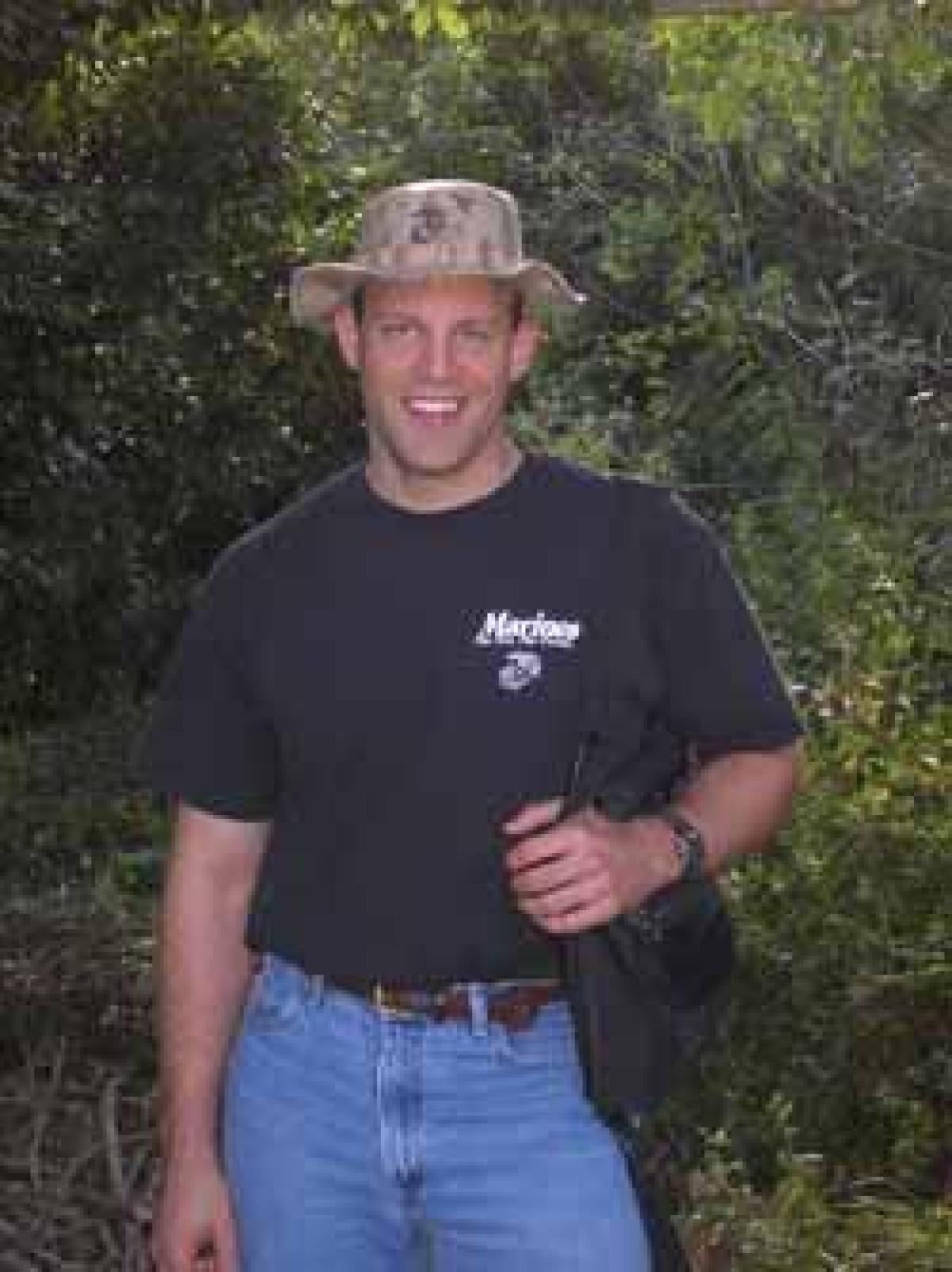I have reverted to type. After 35 years as a newspaperman, the idea that a big story was unfolding and I had no role in it was driving me nuts. Katrina was brutalizing the Gulf Coast, the Sea Services—our guys—were heavily engaged, and I wanted to get into the game. I had to get someone down there for Proceedings. But who? I wondered if some of my old colleagues might be available. Then Hurricane Dave, aka Dave Danelo, blew into my office, unannounced, unexpected, ready to mount out.
Dave said he wanted to be our man in the bayou. His enthusiasm was infectious and my instinct said give the kid a shot even though I knew I was asking a lot from a young man who had no experience in what we call in the trade parachute journalism. That means you drop into where the action is and find the best story you can. It's the kind of assignment reserved for your most seasoned reporters.
Less than 24 hours later, Dave is calling and emailing me from Memphis. Then Baton Rouge. Then from the intersection of something and something near New Orleans. He calls during the day, at night, over the weekend. He is more enthusiastic than ever. I'm starting to second-guess myself. I've sent a rookie to do a job that would tax a veteran reporter.
Here's the most bizarre thing about it: Dave graduated from the Naval Academy in 1998 and as a captain led Marines in combat in Iraq. Ever since my days in the Corps I've thought of Marine captains as the toughest guys on earth. And yet I'm worried about Dave.
As he squirts like a water bug from here to there, I'm sending him emails. Some contain journalistic truisms: Accuracy is everything. Others sound more like a father lecturing his son. One says: DON'T DO ANYTHING STUPID! In another I tell him to be careful of the water, to thoroughly wash even the smallest cuts, to "practice good hygiene."
Why was I so confident he could take this assignment on? Look at the picture on the left. That's Dave in Baton Rouge. Inspires confidence, right? Then why was I so worried? Take another look at the picture on the left.
In the end, Dave got the story, a slice of life tale of a young Marine corporal, Ross Craft, who saw what needed to be done and did it. And Dave is home safely, with no festering sores. He did a terrific job. He'll be back in these pages and hopefully I'll survive his future forays. If not, running a good reporter is a helluva way to go.
In addition to Dave Danelo's story, we further salute in words and pictures the Sea Services, whose response to the devastation wrought by Katrina was evident on news pages and television screens across the nation. We also tip our hat to the Army, Air Force, and National Guard, to whom the nation also owes its gratitude. There's still a war going on. Despite fine reporting by scores of brave correspondents, divining the course of the war is difficult. Proceedings asked Lieutenant General James T. Conway, who commanded all Marines in Iraq and is now director of operations on the Joint Staff, and retired Army General Robert H. Scales, one of the most respected and less predictable military analysts, to take a shot at explaining it to us. We plan to ask others of similar heft to do the same in the months ahead.
The winning entries in the Principles of War essay contest appear in this issue. Don't stop after reading the first prize essay by Army Colonel Christopher R. Paparone and Dr. James A. Crupi. The second and third place winners, by Air Force Lieutenant Colonel Brian Hanley and Ian Roxborough, are very much worth your time.
The Naval Institute, the Johns Hopkins University, and the Royal United Services Institute, working in partnership with the National Defense University, Army War College, Air Force War College, Naval War College, Office of Force Transformation, and the Department of Defense, co-sponsored the essay contest. The Naval Institute Foundation provided the $35,000 in prize money for the winners, who will be honored in person at the 10th Annual Joint Warfare Atlantic Conference Oct. 5 and 6.
Special thanks to Fred Rainbow, my predecessor, and Jaci Day, executive assistant to COO Jim deGraffenreid and a veteran of more than two decades at the Naval Institute. Fred and Jaci took on the Herculean task of shepherding the 784 essays through the multi-stage judging process. There's another big-money essay contest in the works. The Navy, in conjunction with the Naval Institute, is sponsoring "Anchoring Sea Enterprise," a contest with $40,000 in prize money at stake. Leading the Navy's participation is Vice Admiral Justin D. McCarthy, director of Material Readiness and Logistics on the CNO's staff. He and Commander Dave Nystrom provide a point of departure on Sea Enterprise in this issue.




